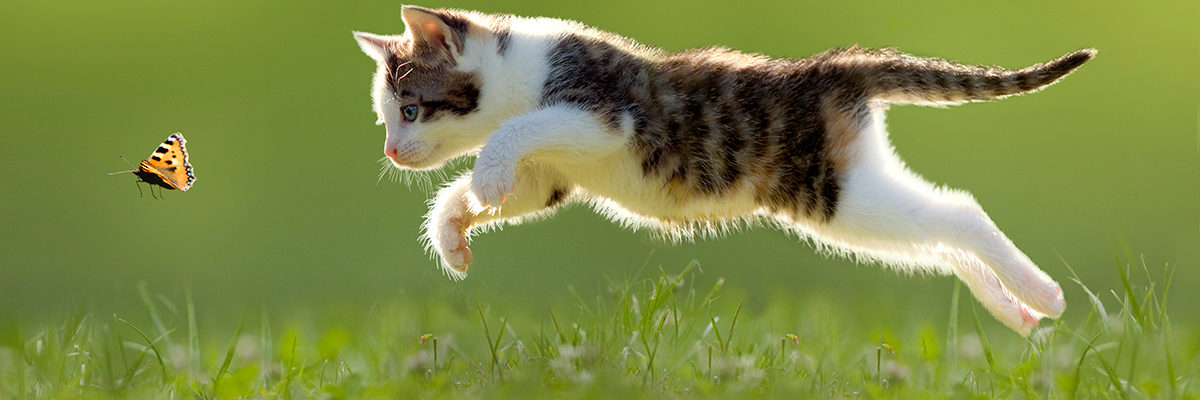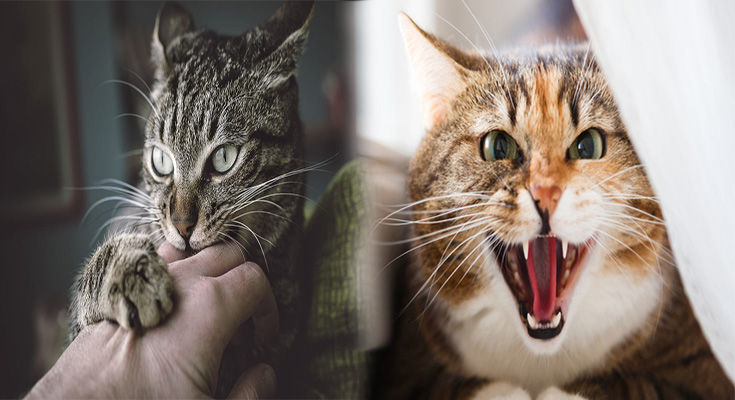If you’ve ever been bitten by a cat, you know it can be painful. In fact, cat bites can even cause serious medical issues for some people—especially if they have an allergy to cats. If your cat loves biting, it’s important to know the difference between play and aggression in cats so that you can keep yourself safe from harm (and your kitty healthy).
Why does my cat love biting?
Your cat may be biting you because they are trying to communicate with you. They might be trying to show that they are in control and it is their job to protect the house from intruders, or perhaps they want attention from their owner. Cats can become frustrated when they feel neglected or ignored by their owners for long periods of time, which could lead them to bite out of anger or frustration. A cat might also be trying to show affection by biting at your hand (or other body part) when it is near them; this type of behavior usually occurs when the cat feels safe around its owner and wants their human companion nearby at all times so they don’t get lonely while sleeping alone at night!
How do I stop my cat from biting?
- Spray your cat with a water sprayer.
- Gently hit your cat with a towel.
- Fill a squirt bottle with water and use it to spray your cat when it bites you or another family member, especially if you’re having trouble getting the attention of your kitty when it’s biting someone else.
- Use an actual gun filled with water (or just an empty one) as an effective way to stop your kitty from biting without hurting them or making them feel scared or upset–and it can be fun for both of you!
Is my cat just playing?
If you find that your cat is biting you, it’s important to understand that play is a normal part of feline behavior. Play helps cats learn how to hunt and interact with other animals in the wild. Play can also be a way for your cat to express himself or herself, which is why some cats will playfully bite other household pets like dogs or rabbits. In addition, playing with toys allows them an outlet for their energy when they’re not getting enough exercise outside (or if there’s no one around who will play with them).
Overall, it’s important not only as a way for owners’ safety but also because most cats enjoy this type of interaction–and if yours doesn’t seem interested in biting people or animals? Try making some new toys out of cardboard boxes instead!
It’s important to know the difference between play and aggression in cats.
The first step in dealing with a biting cat is to determine if it’s play or aggression. This can be difficult, especially if you’ve never had a cat before and don’t know what to look for.
Play usually accompanies purring, meowing and other signs of affection. Aggression is often accompanied by hissing or growling from the cat as well as an arched back posture (also called “tail up”). If your cat bites you while playing then stop playing immediately–this is not okay! However if he’s being aggressive towards you then seek veterinary attention immediately because this may mean there are underlying medical issues causing him pain/stress which could lead to more serious health problems later on down the road if left untreated
The most important thing to remember is that biting is a form of communication, and it’s up to you as the owner to understand what your cat is trying to tell you. If your cat bites you or another member of your household, it may be time for some training or behavioral modification before things get worse.





